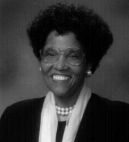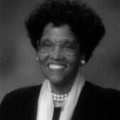Inspired by: Marian Heard

Podcast: Play in new window | Download

How can a woman with 21 honorary doctorate degrees find some “me” time? We asked our board member Marian Heard, President & CEO of Oxen Hill Partners, how her career path led her to her current role, how women can onramp after a work hiatus, and how she stays positive and focused. Scroll down to listen to the full interview.
Q: How did your professional career begin and how did you end up where you are today?
A: I trained initially in college to be an executive secretary. I graduated from the University of Bridgeport and I was second in my class, I might add. I had done very well in high school and thought that that was all the education I ever needed. I quickly found out at the workplace that people who really didn’t have the experience or the exposure were being promoted because they had a college degree. So I went back to college and received an associate’s degree and I continued and earned a bachelor’s degree, and then I was working full-time but also teaching part-time, so I went back to college to get a master’s degree in education. I was selected by the United Way to work on a post-graduate executive-level seminar at the University of Michigan in Ann Arbor and I selected Economics and Social Policy as my focus.
To sum it up, my career has been one in stages, and I’ve been open to opportunities. After staying at home for almost eight years raising our two sons, I went back to run the Head Start Program in Connecticut. From there I was recruited to run the United Way in Bridgeport. So each level of experience really prepares women for the next stage, and women need to be open. I say women on purpose, not so much men. It’s different, I believe, in many ways for men. We need to be open to different opportunities and have confidence to take a gamble on ourselves, even when the position title or the position focus might not seem like a perfect match for your experience and your focus. Go for it.
Q: What are the top tips you would offer a woman looking to re-invent her life?
A: I think number one, be open. Expand your circles, meet new people, focus on different areas of interest, understand that every single connection could lead to another connection and enhance your standing within your respective industry.
The other tip is: continue to learn. I have 21 honorary doctorate degrees, and the joke in my circle is you can ask me hard questions, but don’t get sick; I am not a medical doctor! Each one of those experiences has led me to a different group of people, tours of campus, meeting with trustees. Women need to expand their networks. I’ve often attended conferences related to architecture, engineering, construction, water resources, waste management—things that are completely outside of my sphere, but at those conferences, you not only meet new people, you are exposed to different levels of thinking and how people solve problems. You, in turn, can transfer that to your own line of business and your own professional growth. So again, get out there.
Q: You mentioned that you spent eight years raising your children before returning to the workforce. What’s your advice for women who are looking for an onramp back into their professional lives?
A: They need to keep in touch with people and the broader community. Just because I was at home, I wasn’t disconnected. I maintained all of my memberships and all of my professional affiliations. And I ran two businesses from my house, so I wasn’t sitting idly. There was a focus on my professional development, there were opportunities for me to get out and stay connected to the broader community. I always suggest that women take a look at their volunteer options, because that will give them current experience and, if necessary, a current reference.
Q: What is the one thing that you make time for in your daily life that helps keep you refreshed and positive and going?
A: Two things really. I try to walk or swim. I try to get in a little exercise, but also I carve out some quiet, thinking time every single day, and part of that might very well be with my husband. We’ve been married for decades, and so it’s a good reflective period. But people need to be comfortable with themselves, they need to be able to quietly reflect, that might or might not be reading, exercising, they might napping or walking or going to the movies or whatever it is that gives them some measure of comfort and personal satisfaction, carve that time out every day. People who know me understand that I do that. I might not immediately answer an email, I might not immediately answer a text. I am carving out thinking time. So, I think if you can, slip in some exercise time, some personal time and also some quiet time each and every day.
Interview by Karen Breslau